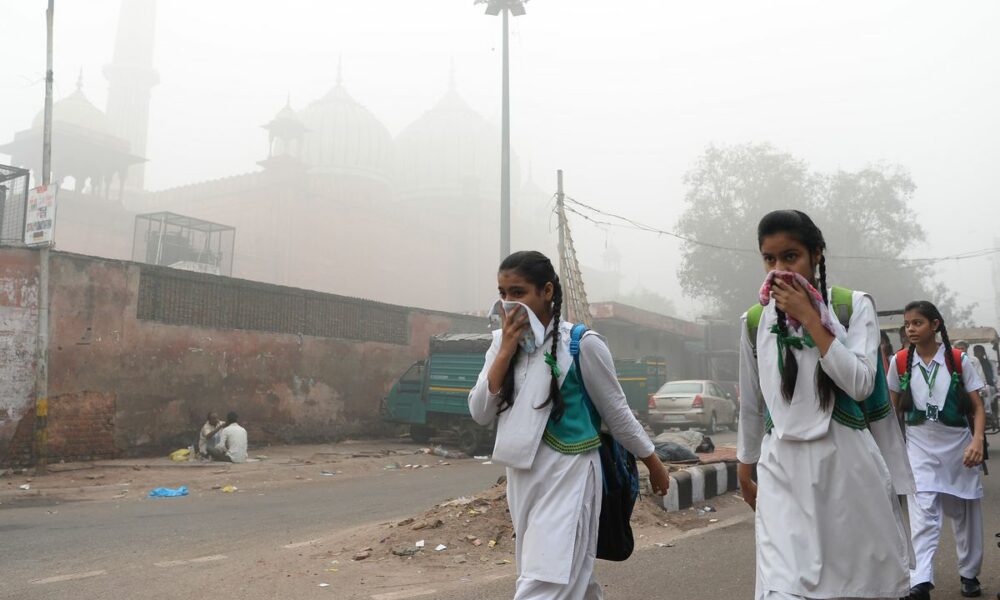The Air Quality Index (AQI) in Delhi NCR has reached the “severe” category, posing a serious threat to the health of people. With the AQI level slipping to the “severe” category, doctors are calling it a health emergency. The number of patients suffering from problems like difficulty in breathing, throat infection, eye irritation etc. has started increasing in hospitals.
Dr Suresh Kumar, Medical Director of Delhi’s LNJP Hospital, has said that in the last 24 hours, 25 to 30 patients have arrived at LNJP Hospital with respiratory problems, who include small children, pregnant women, elderly people and those who are suffering from respiratory diseases.
He said that the number of patients has increased by 10 to 15 pc in every department of the hospital, including chest clinic, paediatric, medicine etc.
Dr Randeep Guleria, former AIIMS Director and senior pulmonologist said, “Right now we are seeing that the Air Quality Index has been in the very severe range for the last few days in Delhi and NCR leading to an adverse effect. As far as respiratory health is concerned, we are seeing an increasing number of patients coming to the OPD with respiratory problems, breathing difficulties, and worsening of the underlying lung problem with asthma, COPD bronchitis or chronic lung disease”.
“There are also studies which suggest that this leads to worsening of heart problems and heart failure. So there is almost a 15 to 20pc increase that one has seen both in the outpatient and in the emergency department”, he added.
Dr. Guleria said that the number of patients coming to the OPD and to the emergency departments has increased. “There is also data that we collected a few years ago, which showed that whenever the air quality is bad in the subsequent four to six days, there is an increase in respiratory problems and increased visits to the emergency due to respiratory problems”, he said.
According to the experts, this is the time when the high-risk group including young children and elderly people need to be extra cautious. Those who have comorbidities especially chronic respiratory problems, and heart problems also need to be careful. People with low immunity need to be catered to.
Dr Guleria further said, “We should avoid going out unless it’s absolutely necessary. If it is necessary to go out, go out when the sun is out and the AQI becomes a little better. Wear your masks while going out because they will give you some protection from the air that you breathe in”.
Dr Guleria added, “About air purifiers, the data is not that concrete. But the best thing would be to avoid stepping out if possible. Also, if you are having chronic respiratory problems or heartburn, you must consult your doctor in case it worsens so that you don’t end up landing in an emergency situation”.
The overall air quality in the National Capital continues to be in the ‘severe’ category’ for the fifth straight day, as per the Central Pollution Control Board.
According to the data issued by the System of Air Quality Forecasting and Research (SAFAR-India), the air quality in the National Capital was recorded at 488, up from 410 a day ago.
According to doctors, for any healthy person, a recommended AQI should be less than 50, but these days the AQI has spiked beyond 400, which could prove fatal for those suffering from lung-related diseases and even poses a risk of lung cancer.
The cases of stubble burning in the neighbouring states of Uttar Pradesh, Haryana, and Punjab are the major sources of air pollution in the city.
Meanwhile, a similar situation was witnessed in Bathinda, Punjab where the AQI remained in the (very poor) category with an overall Air Quality Index recorded at 215.
















